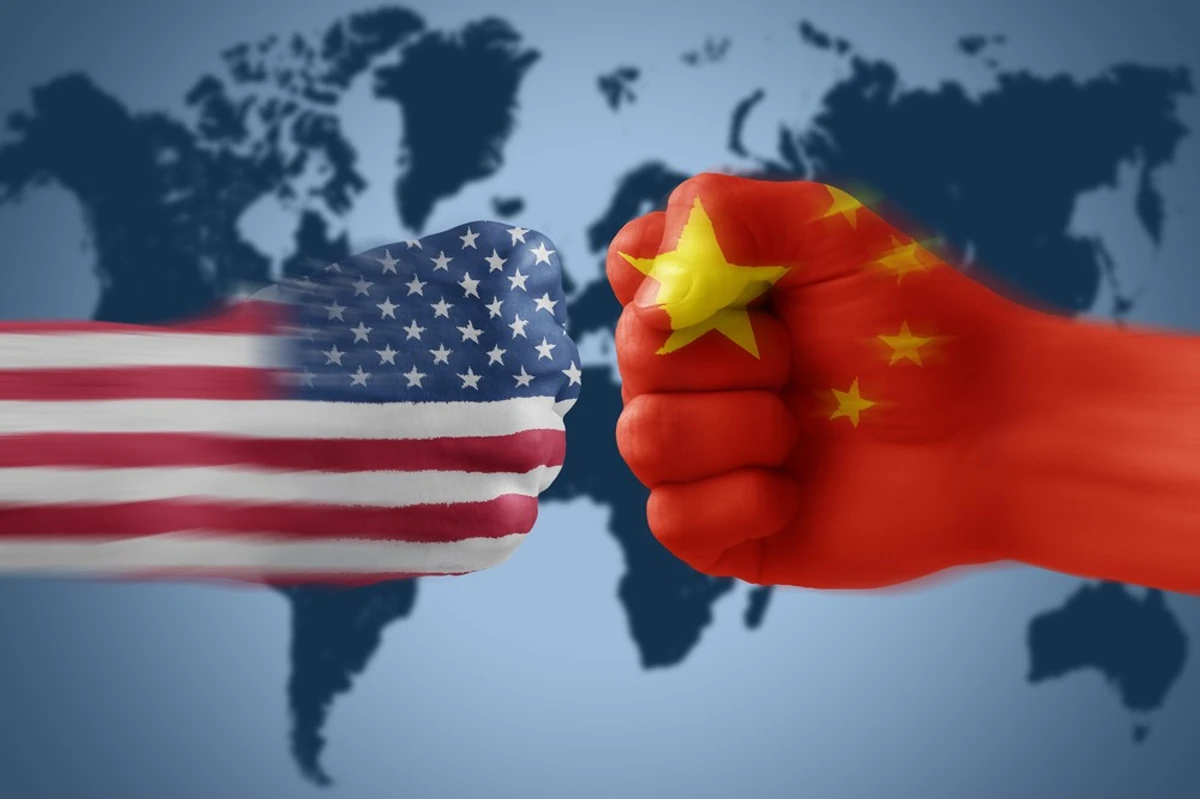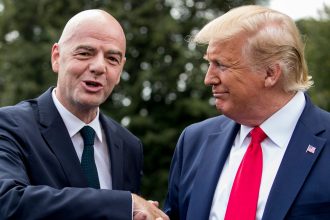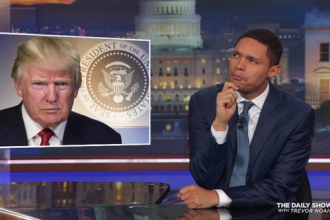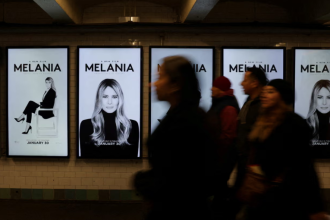In a bold and controversial move, US President Donald Trump has pressed ahead with punitive tariffs that will see certain Chinese goods face duties as high as 104%, deepening a trade conflict that is sending shockwaves through the global economy.
Announced on Tuesday and set to escalate further by Wednesday morning, the latest round of tariffs signals a dramatic intensification of the United States’ trade war with China. The new rates — the result of Trump’s ongoing bid to restore American manufacturing — are already having global consequences, triggering steep losses in stock markets and pushing recession fears into the spotlight.
A Trade War With No Truce in Sight
China, the United States’ top economic rival and also a critical trade partner, has promised to meet the pressure with continued resistance. Beijing, which has imposed reciprocal tariffs of its own, pledged to “fight to the end.” This comes after Trump’s original 34% tariff was met with an identical response from China. In retaliation, Trump signed an executive order pushing the total cumulative tariffs to 104%.
“China wants to make a deal, badly, but they don’t know how to get it started,” Trump told reporters Tuesday, standing firm on his economic stance despite mounting market turbulence.
The president also claimed that the US was “taking in almost R37 billion a day” from tariffs — a statement met with skepticism by economists who argue that these costs are being passed on to consumers and businesses through price hikes.
Inflation, Supply Chains and Global Shockwaves
The tariffs, which now apply to a vast range of Chinese imports, are expected to raise prices across numerous sectors. Economists and industry leaders warn of a rise in inflation as manufacturers and retailers are forced to adjust their pricing to absorb the steep increases in import costs.
Additionally, Trump has signed orders targeting low-value Chinese imports and announced impending tariffs on pharmaceuticals, a move that has alarmed healthcare providers and trade analysts alike.
Trump’s rhetoric has remained combative. During a dinner with Republican lawmakers, he said that other countries were “dying to make a deal,” adding that world leaders were “calling us up kissing my ass,” in a remark that raised eyebrows and headlines alike.
Global Market Reaction
Markets across Asia opened sharply lower on Wednesday following the announcement. Hong Kong’s Hang Seng Index dropped by over 3%, while Japan’s Nikkei 225 fell 2.7%. Meanwhile, the South Korean won plunged to its weakest point against the US dollar since 2009, and the Chinese yuan fell to a record low — its fifth straight day of losses, driven in part by deliberate central bank interventions.
Oil prices also took a hit, with West Texas Intermediate (WTI) falling below R1,130 per barrel, its lowest level since April 2021. Investors have been scrambling to hedge against market volatility as equity values tumble.
Diplomatic Fallout and Global Pushback
The United States isn’t the only target of international backlash. Canada has also joined the fray, announcing that its own tariffs on certain US automotive imports will go into effect on Wednesday.
In Europe, leaders are treading carefully. European Commission President Ursula von der Leyen urged restraint in a phone call with Chinese Premier Li Qiang, emphasizing the importance of global economic stability and warning against further escalation.
French President Emmanuel Macron, however, struck a more defiant tone, calling on Trump to reconsider. “If the EU must respond, so be it,” Macron said.
The European Union, which has itself been in Trump’s crosshairs over its trade practices, is reportedly preparing a counter-tariff plan in response to a new 20% levy on EU exports to the US. The bloc has already drawn up a list of American products — ranging from soybeans to motorcycles — that could face tariffs of up to 25%.
Custom Deals and Trade Recalibration
Despite the chaos, the Trump administration insists it is working behind the scenes to repair ties with some allies. Trump said the US was pursuing “tailored deals” with countries willing to negotiate better terms. According to his trade team, nations like Japan, South Korea, Argentina, Vietnam, and Israel have offered to reduce their own tariffs in exchange for exemptions.
Jamieson Greer, the president’s top trade official, told the Senate that these bilateral agreements could help restore balance while focusing punitive measures more squarely on China.
Final Thoughts
While Trump continues to assert that his strategy will bring jobs back to American soil and curb unfair trading practices, critics argue that the timeline for such benefits — if they arrive at all — remains uncertain. In the meantime, global markets remain on edge, inflationary pressures are mounting, and diplomatic ties are fraying.
The real question may not be whether tariffs can achieve economic justice, but how much global instability they’re worth.












